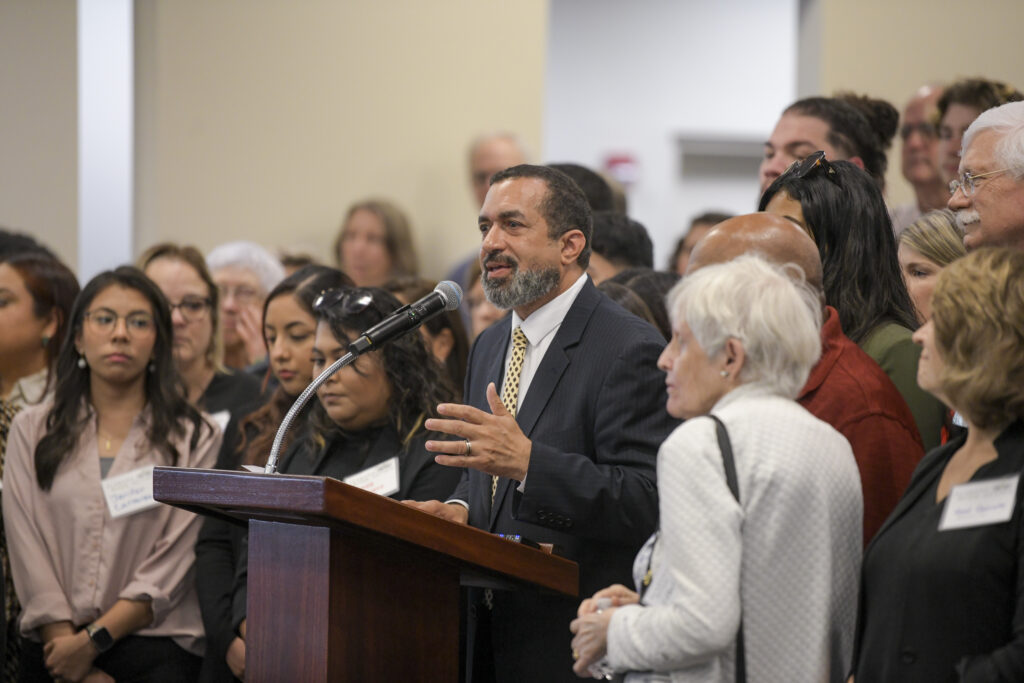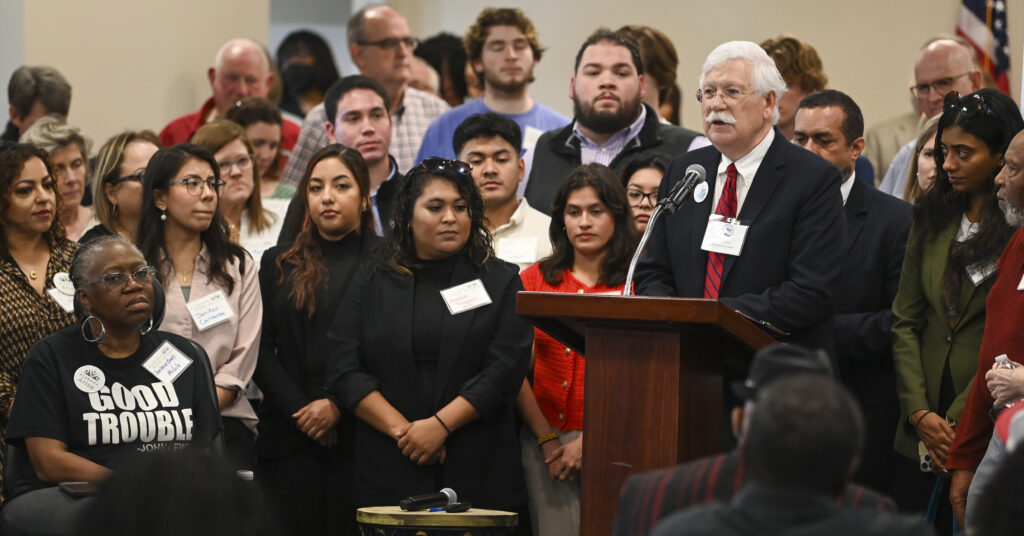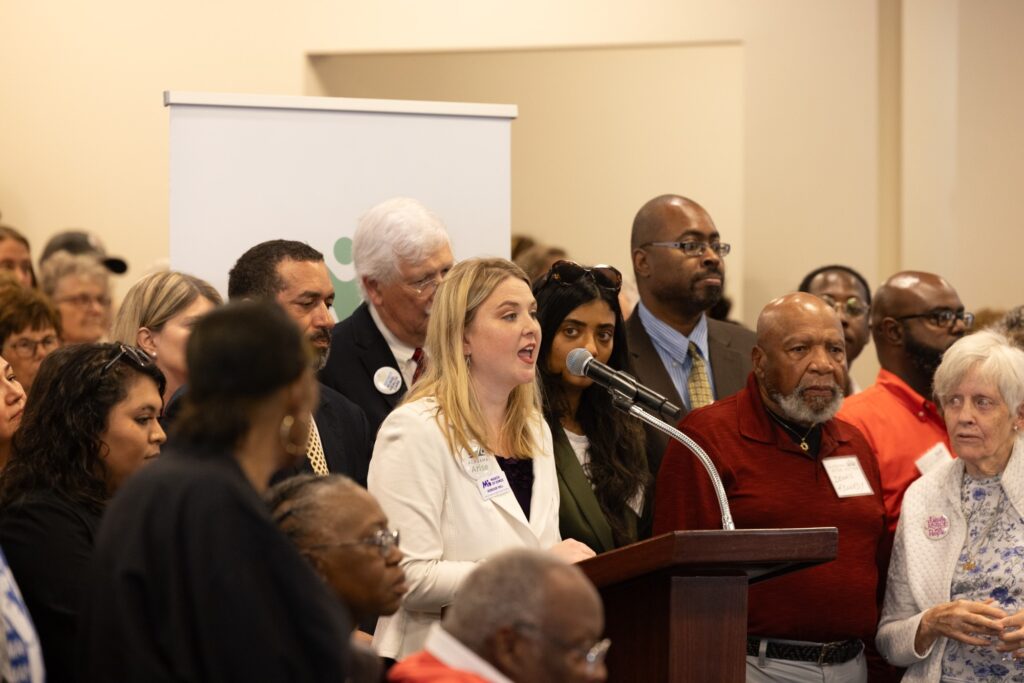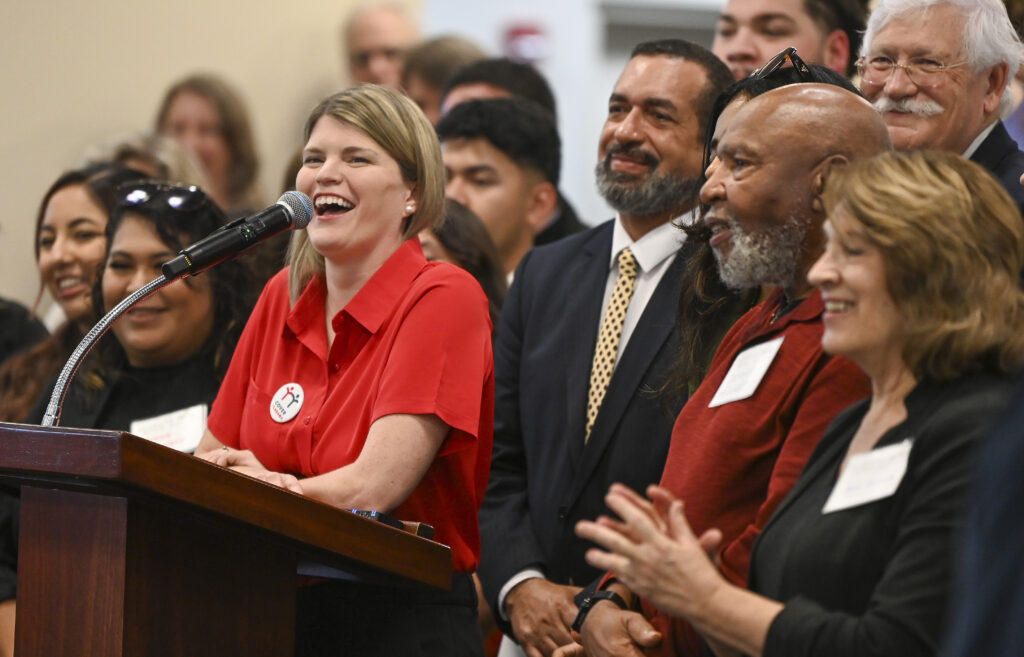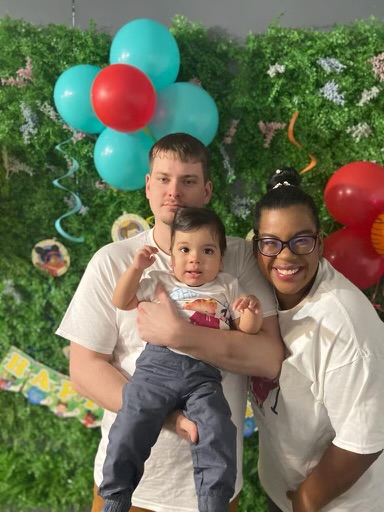Arise’s Akiesha Anderson provides an update on where things stand in the final days of the Alabama Legislature’s 2024 regular session. Unfortunately, we received unfavorable news last week on public transportation funding and legislation that would discourage employers from voluntarily recognizing a union. But we also have good news: Alabama lawmakers heard Medicaid expansion success stories from Arkansas and North Carolina officials last week, and your determined advocacy for funding Summer EBT is making a difference! Check out more by visiting alarise.org and clicking on “Take Action.”
Hi there. Akiesha Anderson here, policy and advocacy director for Alabama Arise. Per usual, I am here to provide you with another legislative update. With only five legislative days left this session, there is a lot left to get done before the clock runs out. Before we get into what’s left to do, however, let’s briefly discuss what happened at the State House last week.
Last week began with Alabama Arise calling a public hearing in the Senate Finance and Taxation [Education] Committee on HB 145. HB 145 is the Education Trust Fund budget. During the public hearing that took place last week, we spoke about the importance of the Legislature including funding for Summer EBT for 2025 in the Education Trust Fund budget. Currently there is no funding for Summer EBT for either this summer nor next. Thus, we are trying to do everything in our power to ensure that next summer, the half a million kids that rely on school meals don’t go hungry during their summer break. We were grateful to be joined by several of our Hunger Free Alabama partners, including VOICES for Alabama’s Children, who testified about the importance of Summer EBT last week. And we look forward to seeing what unfolds this week regarding this issue.
Last week, we also saw HB 376 by Rep. Yarbrough pass out of the House Public Safety and Homeland Security Committee. If passed into law, this bill would allow local law enforcement to serve as a proxy for ICE and potentially target and racially profile many of our immigrant neighbors while trying to enforce federal immigrant laws.
Last week, we also saw SB 91 by Sen. Linda Coleman-Madison, which would have added an additional license tax fee as a mechanism to fund the Alabama Public Transportation Fund. Unfortunately, this bill received a 6-7 vote and thus failed to pass out of committee, Thankfully, however, Sen. Coleman-Madison has expressed a commitment to come back next year in pursuit of funding for public transit.
Last week, we also saw SB 231 by Sen. Arthur Orr pass out of the House. This is the bill that would strip companies of tax incentives if they voluntarily recognize their workers’ decision to form a union. This bill is one like Rep. Yarbrough’s bill that we are opposed to, and it is now slated to be back in the Senate and to potentially have a conference committee to discuss some of the amendments that were placed on it in the House.
Lastly, last week the House and Senate held a Joint Health Committee meeting, which was designed to discuss solutions for closing the health coverage gap. During this hearing, lawmakers heard from both Arkansas and North Carolina legislators or lawmakers, who shared with our lawmakers details about their quasi-Medicaid expansion plans that have been rolled out in each of their respective states.
Last week was a lot. Again, we are racing against a clock, so let’s move forward to what’s going to be on the tap for this week.
This week is slated to be a budget-heavy week. In the Senate, the General Fund, a supplemental General Fund, a cost-of-living increase for state employees, the Education Trust Fund and a supplemental Education Trust Fund will all be deliberated in committee on Tuesday.
We are optimistic that Sen. Arthur Orr will prove to be a hero to the half a million kids that I referenced earlier by ensuring that there is funding for Summer EBT in the Education Trust Fund budget this week. Also in committee this week will be SB 312 by Sen. Barfoot. This is a bill that will be deliberated by the House Judiciary Committee on Wednesday, and if passed, it will give people in prison an opportunity to attend their parole hearings virtually.
Lastly, neither here nor there, the Legislative Council will be meeting this Wednesday afternoon to discuss the State House construction project which is currently underway.
My friends, there is quite a bit left this legislative session, quite a bit slated for this week. However, as the clock continues to tick down, I’ll be sure to be here to continue to provide you with weekly updates. In the meantime, take care.


